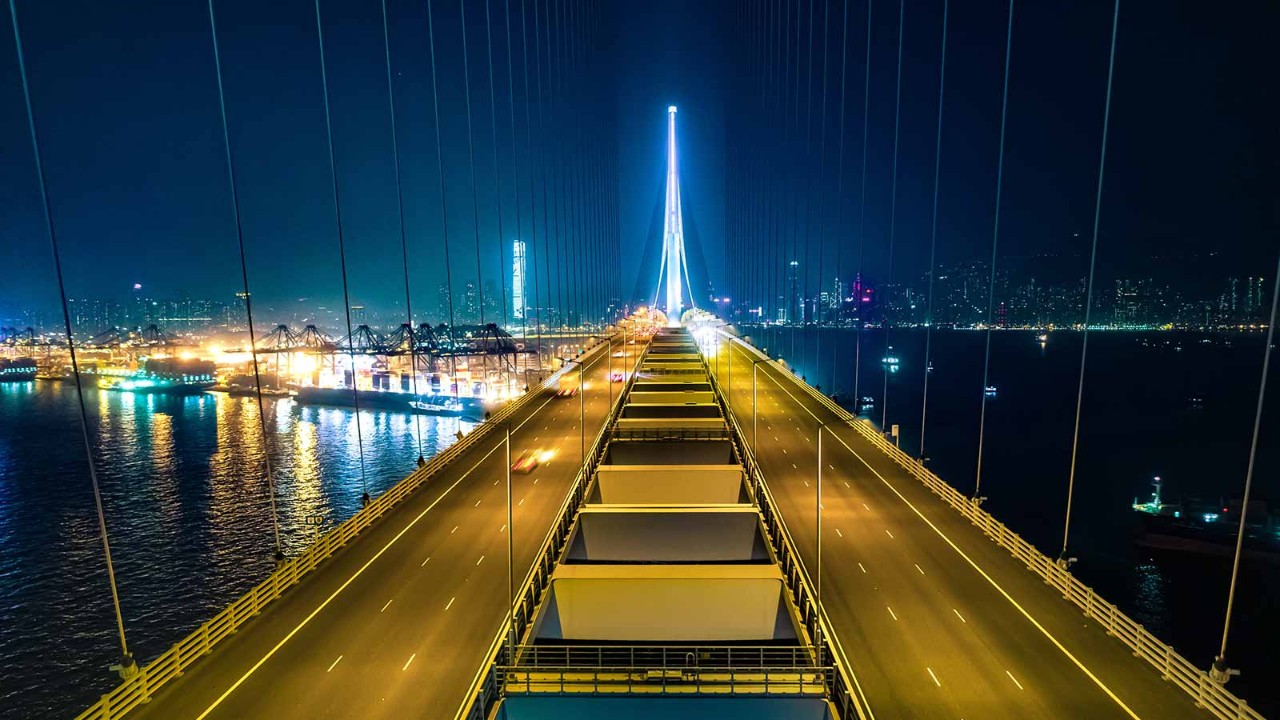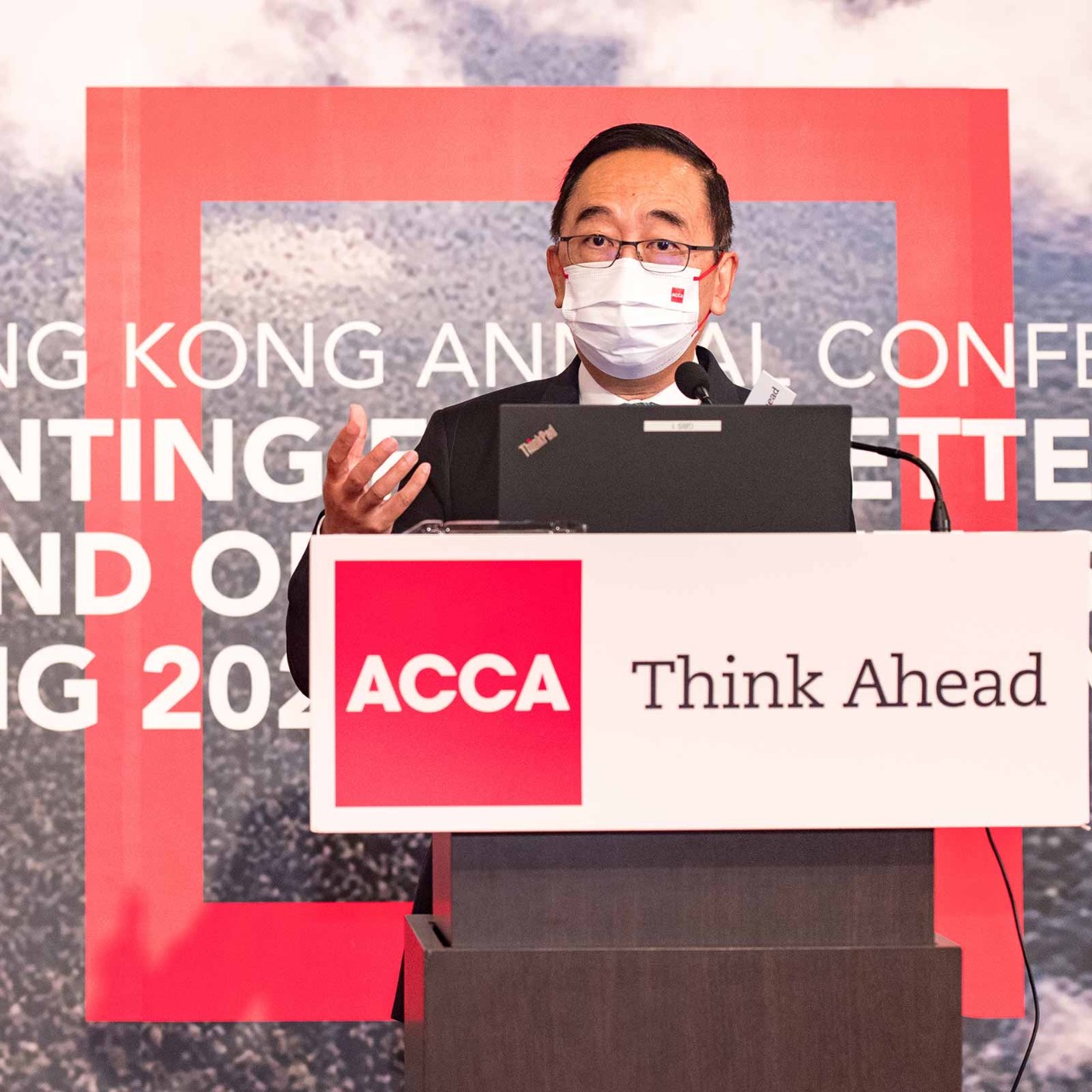
To maintain sustainable growth in the face of a changing global environment, Hong Kong SAR will need to adapt its business model and increase its connectivity with Asia – and especially mainland China.
Challenges such as deglobalisation, accelerating US-China trade tensions and faster-than-expected inflation have raised the need for the Special Administrative Region to shift and adapt to the demands of an increasingly competitive environment, delegates at the ACCA Hong Kong annual conference heard.
Among the many hardships the world is currently facing, deglobalisation may be the most significant because of the potential impact on supply chains and the global economic structure. This could be the trend for the next 20 or 30 years, George Leung, CEO of the Hong Kong General Chamber of Commerce, told delegates.
'Digital tools drive crossborder service trade, which is an area that Hong Kong can strengthen'

Service edge
Despite the challenges presented by deglobalisation, there are, Leung said, specific niches that Hong Kong could fit in, chief among them the service industry. 'It is mostly free from the impact of supply chain disruptions as digital tools drive crossborder service trade, which is an area that Hong Kong can strengthen,’ he said, adding that the SAR already had a strong service sector.
Facing the possibility of a more disjointed world, Leung suggested that companies might react with strategies such as diversification, 'friend-shoring' – economic partnerships with trusted allies – and divestment. However, adopting measures to control risk can also increase the costs; geographical diversification and operational contingency plans can all be expensive.
Uncertain future
Nevertheless, Hong Kong SAR faces challenges, partly due to the ongoing trade issues between China and the US, while the number of foreign regional headquarters in the SAR has started to fall, even as the number from mainland China companies has increased. This is, Leung said, coupled with Hong Kong's declining tax advantage.
‘Hong Kong used to have an attractive tax advantage in the 1980s,' he said. 'But the tax advantage is deteriorating given corporate tax rates have declined in every region over time.'
Leung was also concerned that the OECD’s Base Erosion and Profit Shifting (BEPS) 2.0 project and the introduction of a global minimum effective tax rate would reduce the effectiveness of tax concessions as a way to boost competitiveness.
'The middle class is the class that may generate many economic activities. Hong Kong should seize the chance'
Lagging behind
Moreover, Leung believes that Hong Kong is lagging behind in investment and R&D spending, which may make the city less competitive in innovation and technology.
‘Investment is an important part to drive the economy while Hong Kong’s total investment spending only accounts for 17.6% of its GDP,’ he said.
Another disadvantage lies in Hong Kong’s aging workforce and shrinking foreign talent pool.
‘Hong Kong’s workforce peaked at four million in 2018 and has since declined by 6%. Manpower shortages and the brain drain have become major business concerns,' Leung said.
Asia opportunities
Although Hong Kong faces many headwinds, Leung also thinks that Asia’s growth will generate opportunities for Hong Kong in the future.
‘Sixty-five percent of the global middle class will be concentrated in Asia by 2030. The middle class is the class that may generate many economic activities. Hong Kong should seize the chance and serve this class’s demand with our services industry,’ he said.
Even though deglobalisation is deepening, Asia’s intra-regional trade remains impressive. Leung suggests that Hong Kong strengthen its status as a trade hub and generate more opportunities. One of the most important roles could be in supporting mainland China's integration into Asia, as the influence of the second largest economy in the world continues to grow.
‘China, by some measure, has already overtaken the US as the world’s largest consumer market,’ Leung said, adding that offering services to Chinese manufacturing companies would provide opportunities.
Opportunities are unfolding and Hong Kong needs to adjust its business models, he concluded: ‘Our business models used to be focused on the West. Hong Kong now needs to rethink its focus.'
More information
Read our article on the ACCA Hong Kong annual conference, Strengthening Hong Kong
Watch a video of George Leung's keynote speech at the ACCA Hong Kong annual conference




